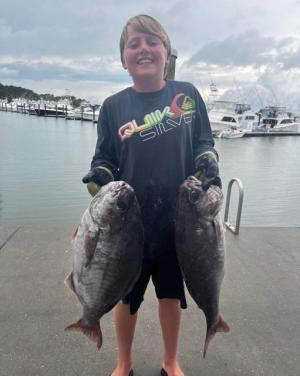There is a plan being proposed by US Wind to bring power cables from its wind farm off the coast of Ocean City, Md., ashore at Three R’s Road Beach in Delaware Seashore State Park. Chris Flood covered this in last Friday’s edition of the Cape Gazette, and, boy, did it grab my attention. Three R’s Road has been my favorite surf-fishing spot for more than 50 years. Naturally, I want to know what impact the power cables will have on fishing.
In addition to the proposed cables coming ashore at Three R’s Road, US Wind plans to run them under Indian River Bay up to Millsboro and join the power grid near the plant there.
This plan must pass many hurdles before it happens, including permits from Delaware’s Department of Natural Resources and Environmental Control.
On Tuesday, I spent two-and-a-half hours on a virtual meeting with officials from the Bureau of Ocean Energy Management. They spent at least an hour and a half explaining the process of granting US Wind permission to bring its cables ashore. The company already has secured leases for the windmills. The only mention of fishing was a brief talk about the University of Rhode Island conducting an ongoing study on the effects of electromagnetic fields produced by buried power cables on fish like skates and sharks, and shellfish like lobster.
Then the comment period began. Everyone who spoke, except one man, was all in favor of the wind farm. Several were members of nonprofit environmental groups, and two labor unions expressed thanks that the work was going to be done by their members.
I was the only fisherman who spoke, and I am pretty sure I was the only fisherman there.
I said I was all for alternative energy because the other alternative is extinction.
I also expressed my concern that running those power cables under the very shallow Indian River Bay could have a devastating effect on the fishing. There have been studies in Europe that showed flounder were affected by the electromagnetic fields produced by the cables. More studies are needed to see how deep the cables should be buried to eliminate this problem.
In reading the tea leaves, I can see the wind farms are a done deal. What fishermen need to do is try to make them the least destructive they can be. Can you imagine Indian River Bay with no flounder?
The comment period is open until Friday, July 8. Go to boem.gov and click on Contact Us.
Fishing report
We had a very unusual catch made recently by a young man fishing with his dad. Zane Winkler was fishing the Baltimore Canyon with his father Bill when he caught three barrelfish. They weighed 14.7, 14.3 and 12.5 pounds. This is the first time I had heard of barrelfish, so I checked with my friend Roy Miller. He said barrelfish live in depths of 196 to 397 feet and grow to 3 feet long. The world record is 20.9 pounds. Juveniles can be found at the surface under floating debris. John Clark from the DNREC Fisheries Section added that recent surveys found barrelfish and snowy grouper together.
The rest of the fishing is pretty much the same old story. Kings along the beach, flounder and sea bass at the Old Grounds, and croaker, spot and kings at the Delaware Bay reef sites.
Marine weather
There is an old joke about charter captains who plan their trips according to the marine weather from NOAA. They either starve to death or drown. As bad as NOAA weather can be, it does not hold a candle to the blow-dry weather guys on TV. Every night, I go nuts listening to their marine forecast.
One night last week, one of them had small-craft advisories up for the Delaware and Chesapeake bays and the Atlantic Ocean, and all had seas of two feet. At other times, they will have a northwest wind of 15 to 20 knots on the Delaware and Chesapeake bays with seas of 2 to 3 feet. I would love to take every one of them out on Delaware Bay during a hard northwest blow and incoming water, and give them a little ride from Lewes to Bowers Beach.
If you have been running a boat for any amount of time, you have figured out what sea conditions follow what weather patterns. You know a hard northwest wind will follow the passage of a cold front. You know to fish early in the day during the summer before the heat causes that sea breeze to pick up in the afternoon. You constantly keep an eye on the sky looking for any changes that might indicate approaching thunderstorms or fog. Learning to be your own weatherman is just another responsibility of being a boat owner.























































